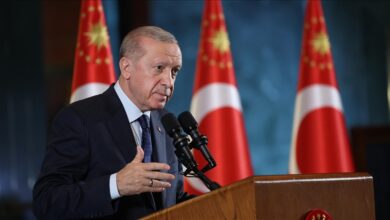
Foreign Policy magazine: Arab normalization with the Assad regime has made Syria’s problems worse
Foreign Policy magazine released an analytical article Monday on July 30. The article said that normalizing Arab relations with the Assad regime has made Syria’s problems worse.
The decision of Saudi Crown Prince Mohammed bin Salman to reengage with Assad regime has led to regional change, pointing out that Assad regime’s return to the Arab League was due to accelerating Saudi efforts, according to the article.
The article added that the United Arab Emirates normalized its relations with the Assad regime in 2018, then it began to prompt others to do so. Jordan’s king Abdullah II appeared as the architect of normalization plan with Assad regime, publishing classified papers through all the region including Moscow and Washington.
The article revealed that Europe demonstrates no signs of normalization with the Assad regime, nor is the United States, although some senior White House officials have given the green light in particular to the region’s pivot.
The US administration also views Middle East crises, such as the “Syrian crisis” as unresolvable and marginal to US interests, and not worth the effort, according to the article.
Russia used the veto power against extension of 9-year-old mechanism to deliver aid into northwest Syria, while Assad regime submitted a proposal for aid delivery, which contained conditions that made it impossible to practically implement the proposal.
The article made it clear that Saudi Arabia and Jordan were more concerned about the spreading of “Captagon” trade, which is produced on an industrial scale by prominent figures of the Assad regime, and the countries of the region also sought to persuade Bashar Al-Assad to put an end to it.
The magazine expressed through its article the hope for opening a safe route for the return of refugees to Syria after restoring relations with the Assad regime, pointing out that the massive number of refugees in the neighboring countries imposes pressures can not be endured by the hosting countries.
The article explained that despite Assad regime’s return to the “regional fold” and the exemption from sanctions imposed on him, the Assad regime’s economy collapsed rapidly due to the devaluation the Syrian Lira.
The magazine considered in in its article that the fault is within the system itself, which has proven to be systemically corrupt, incompetent, and driven by greed rather than the public good.
The magazine added that “The financial mismanagement and prioritization of the illegal drug trade have killed the Syrian economy, perhaps forever.”




